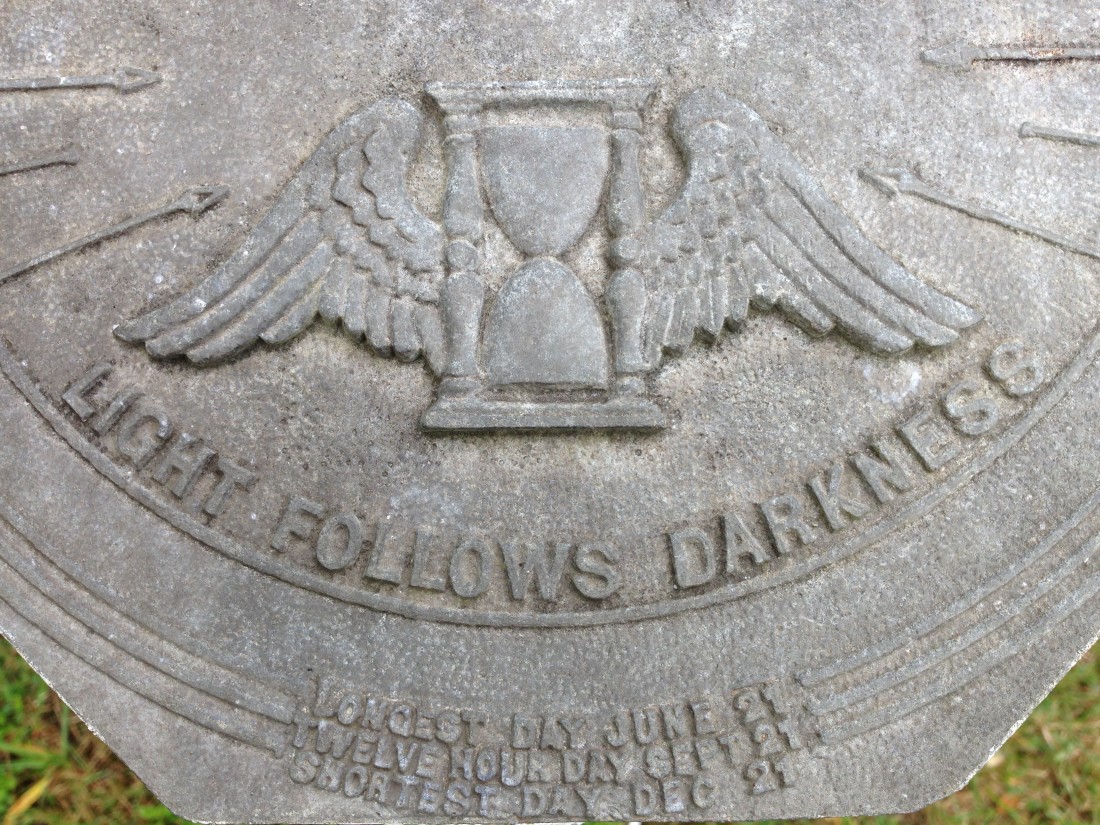Guides for a Dark Time
Guides are good. I learned this when I was nine, lost in a downpour in the southern hills of New York State. Were it not for one counselor, and her confidence in the few green blazes barely visible through the drenched woods, I would be tramping still.
I am rereading May Sarton’s journal, At Seventy. Her almost religious devotion to her annuals garden and the daily reinforcements that arrived in spring for her to plant, would make a green thumb out of an armadillo. Her labors, punctuated by asides from Emerson, Virginia Woolf, or Camus, is seductive. Reading it, I want her life, with its stream of visitors, its letters, its amplitudes.
One entry has lingered with me. Sarton describes a friend just turned fifty as “imaginatively kind.”
The phrase throws a gauntlet to the reader. Imaginative kindness. It has an entirely different quality than the ordinary, dutiful, run-of-the-mill. It is kindness that anticipates. It strives to go deep towards the well-being of another – looking for occasions for surprise, delight, for hitting the mark, instead of just glancing the periphery.
We know it when we see it. The considered gift, the innovative reading program, the art class where last year there wasn’t one, using recycled materials.
In these days of disastrously crude public discourse, and the waves of almost equally bad reactions with their rhetoric of accusation, victimhood, and anger, kindness can easily seem too frail and meager a thing to matter. Care lives in the small details of attention – and who has time for that when the country is imploding?
We do. And we must.
I cherish the memory of a neighbor’s “imaginative kindness” on a day long ago when, like a scorched-earth patch of earth, I was sorely in need of tending to. Recently retired, she spent many hours of every day in her extensive gardens, replanting, raking, weeding. They were so lovely that cars would slow to admire her handiwork.
It was a time in life when I was overwhelmed with child-rearing, more work than I could reasonably manage, and a busy husband. I had neither the time nor money to do anything about my weed-ridden, depleted yard. One summer day, without a word, she disappeared into the jungle behind my house with her tools — a rake, an edger, and a hoe — and set to work. She edged the beds, raked away moss and leaves, pulled out weeds.
I hadn’t realized how low I’d been until I felt the lift of her amazing transformations. It was as if someone had changed my sheets, opened the windows, and let in a whole new season. It was a gift, imaginative and incredibly kind. Easy to say that it didn’t change history, but I disagree. It changed my day, my month, and probably my year, with its ripples. It is changing things, even now; like all acts of kindness, it is a gift that keeps on giving.
For her 50-year-old friend, Sarton composed a poem, because her friend’s journey was, she writes, “partly about coming to a place where life has grown more important than ambition…”
I suspect that this is precisely the change required of us if we are to be “imaginatively kind.” And it is perhaps why such kindness is in such short supply. Ambition blinds. It is a distraction that, for years, we mistake for the main event. Kindness sees.
And seers are the guides we need now. They aren’t household names, most of them, or people we recognize from the news. Most of them are poets and gardeners of one ilk or another, pottering away in classrooms or clinics or in forlorn places somewhere very near us, shaping life in a vision of hope for those too burned out or too far underwater to be able to do so for themselves.
It is a good exercise in awareness to think about who these guides have been, or who they may be, in our lives today. Then to learn from them to slow down and pick up our own rakes or paint brushes, write our own poems, paint our own canvasses, practice a kindness that stretches the frame of us.





No Comments